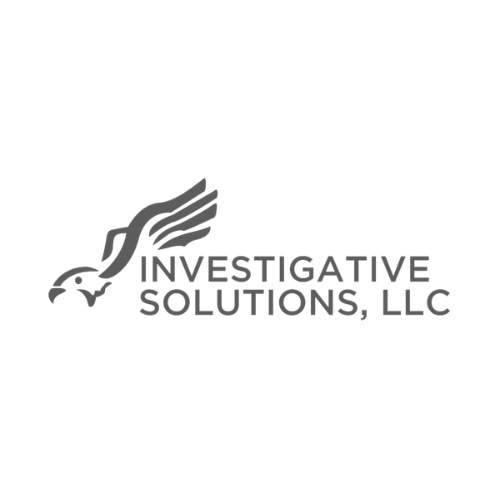-
DEFINITIVE RANKINGS
We work hard to come up with definitive, objective rankings. Learn more about our rankings:
-
SUPERLATIVE QUALITY
Only the top companies are ranked on our lists. Learn more about our standards:
-
OBJECTIVE METRICS
We use a set of advanced metrics to gauge each company. Learn more about our metrics:

Ranking the Best Private Detectives for 2026
Are you interested in being evaluated for next year's list?
Contact UsRankings
Private Detectives: What should you be looking for?
At Best Private Detectives, our mission is to provide a comprehensive, impartial platform that ranks private investigators across the United States. Our aim is to empower individuals and businesses to make informed decisions by providing a reliable resource that evaluates the professionalism, expertise, and success rates of private detectives. Through rigorous research and clear, straightforward communication, we endeavor to bring transparency and accountability to an often opaque industry.
Are Private Detectives worth it?
Hiring private detectives can be a prudent investment, particularly when navigating complex situations that require specialized expertise and discretion. Their ability to uncover information that may not be readily accessible can save time and potentially mitigate risks, whether in personal matters or business disputes. Ultimately, the decision hinges on the specific circumstances at hand and the value of the insights they can provide.
What to look for when hiring Private Detectives?
At Best Private Detectives, we understand that the realm of private investigation can be quite perplexing, especially for those who are navigating it for the first time. Hence, we’ve curated a comprehensive list of FAQs to assist our users in their quest for clarity. The complex dynamics of the detective industry necessitate a resource that not only provides guidance but also helps in making informed decisions. Our FAQs serve this very purpose, addressing common concerns, debunking misconceptions, and explaining intricate terminologies. The goal is to give our users an edge in their pursuit of the right detective services, ensuring they approach their investigative needs with confidence and insight.
Am I ready to handle the truth that might be uncovered during the investigation?
Engaging with private detectives can indeed uncover some truths that might be challenging to handle. This is an important consideration when deciding to hire a private investigator, as the information revealed might potentially alter relationships, perceptions, and circumstances. However, it's essential to remember that the role of a private detective is to provide clarity and truth, helping you make informed decisions and take appropriate actions. Before hiring a private investigator, it's crucial to prepare yourself emotionally and mentally for any possible outcomes, ensuring that you're ready to address the truth, no matter what it may be. It's this readiness that will help you utilize the services of a private detective to their full potential, making it a beneficial experience.
Does the Private Detective have a good reputation and positive reviews from previous clients?
Determining the reputation of a private detective firm is paramount in ensuring you receive quality service. To do this, one should first look at online reviews from previous clients which can offer invaluable insights into the company's reliability and professionalism. Reviews can be found on various platforms such as Google, Yelp, or even on the company's own website. However, remember to evaluate these reviews critically as they can sometimes be manipulated. Besides, it's also recommended to check if the firm is accredited and holds a valid license, as such credentials could be an additional indicator of their credibility in the private detectives space.
Am I prepared to respect the legal and ethical boundaries that the Private Detective must operate within?
Engaging with a private detective necessitates a certain level of respect and understanding for the legal and ethical boundaries within which these professionals operate. This is because private detectives are bound by local, state, and federal laws, which dictate the extent of their investigative practices. They must also adhere to ethical guidelines that prohibit behavior such as invasion of privacy or falsification of information. Therefore, as a potential client, it's crucial to prepare yourself to respect these parameters. This will not only ensure the legality and integrity of the investigation but also maintain a professional relationship between you and the private detective.
Key Takeaways about Private Detectives
When selecting a private detective, it’s crucial to consider their qualifications and relevant experience, particularly in the area pertinent to your case. Look for professionals who are licensed and insured, as this often signifies adherence to legal and ethical standards. Assess their reputation through client testimonials or reviews, which can provide insight into their reliability and effectiveness. Additionally, understanding their investigative techniques and tools can offer reassurance that they are equipped to handle your specific needs. Finally, ensure that you have a clear agreement on fees and confidentiality, as these elements are vital to establishing a trustworthy working relationship.
Frequently Asked Questions
A private detective, unlike a police officer, operates independently or within a private agency, unbound by many bureaucratic constraints of public law enforcement.
They take on cases that police might not prioritize, including private matters such as:
- Infidelity
- Missing persons
- Background checks
However, while police officers have a mandate to arrest and enforce the law, private detectives lack such legal authority, and they must work within legal boundaries to gather information.
Private detectives typically possess a broad range of skills including:
- Surveillance techniques
- Knowledge of laws and regulations
- Strong analytical abilities
They often have a background in law enforcement or criminal justice and may hold relevant certifications or licenses, depending on regional requirements.
Their expertise lies in gathering information discreetly, making them an ideal choice for individuals or organizations needing confidential investigative services.
Private detectives, often referred to as private investigators (PIs), typically require a mix of formal education and on-the-job training. They may hold a degree in criminal justice or a related field, but most essential is practical experience often gained through years in law enforcement or military service.
Some states also require PIs to pass a licensing examination. Additionally, they must continually update their skills to keep abreast of the latest investigative techniques and technology.
Yes, it is perfectly legal to hire a private detective. Private investigators operate within the law to gather information, conduct surveillance, and assist with cases ranging from marital disputes to corporate fraud.
It's important to ensure that the private detective you hire is:
- Licensed
- Abiding by local laws and regulations
This helps maintain the legality and integrity of their investigations.
Private detectives are typically hired to gather information for personal, legal, or business purposes.
Some common reasons include:
- Investigating suspicions of infidelity
- Locating missing persons
- Conducting background checks
- Assisting in divorce proceedings
They also help in:
- Collecting evidence for legal cases
- Performing surveillance
- Combating corporate espionage
These professionals utilize a range of tools and techniques to uncover hidden details, helping clients make informed decisions.
Private detectives adhere to stringent confidentiality rules similar to those in legal or medical professions. The information they gather in the course of their investigations is typically not disclosed to anyone other than their client. However, it's essential to ensure this confidentiality is explicitly stated in your agreement with a detective, as practices may vary among professionals.
Private detectives utilize a range of tools for their investigations, depending on the case specifics. Common equipment includes:
- Surveillance cameras
- GPS trackers
- Specialized computer software for data analysis
- Audio recorders
- Binoculars for long-distance observation
- Undercover vehicles
The choice of tool depends on the nature of the investigation, and the ethical and legal guidelines the detective adheres to.
Private detectives, while versatile in their skill set, reserve the right to decline cases that breach legal or ethical boundaries. They can refuse cases involving illegal activities, such as:
- Entrapment
- Impersonation of law enforcement
Additionally, they may turn down cases that infringe on personal privacy without just cause, or those that could potentially harm their reputation or professional standing.
Private detectives, often known as private investigators, do not have the same legal authority as police officers. This means they are generally not permitted to make arrests. However, they can be instrumental in gathering evidence and information that can lead to an arrest.
It's key to remember that regulations can vary between jurisdictions, so it's crucial to understand the legal boundaries within your specific location.
The duration of a private detective investigation can greatly vary based on the complexity of the case.
- Simple cases, such as background checks or locating a person, may take a few days to a week.
- More complicated matters, like fraud investigations or surveillance operations, can extend to several weeks or even months.
It's crucial to maintain open communication with your investigator to understand timelines and progress.
When hiring a private detective, ensure they have a valid license, relevant experience, and positive client testimonials.
Look for:
- Strong communication skills
- A clear fee structure to avoid unexpected costs
Lastly, ensure they operate with discretion and respect for privacy laws to maintain your confidentiality.
Yes, a private detective can operate internationally, although this is dependent on the laws and regulations of the specific countries involved. They may need to partner with local firms or obtain special licenses for certain investigative activities.
It's important to hire a detective familiar with local customs and laws to ensure the investigation remains within legal boundaries. Therefore, when considering an international private detective, it's crucial to verify their cross-border experience and credentials.










